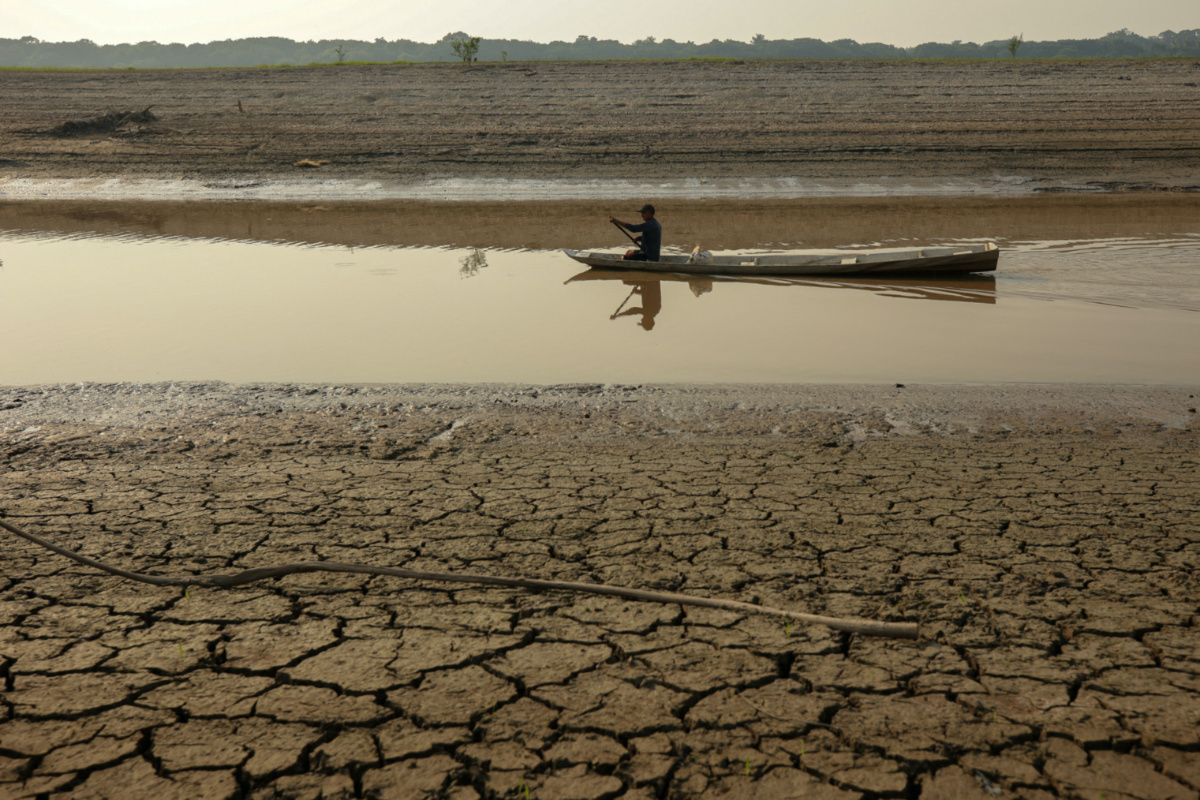Manaus, Brazil
Reuters
Indigenous inhabitants in the Amazon are asking the Brazilian Government to declare a climate emergency as their villages have no drinking water, food or medicine due to a severe drought that is drying up rivers vital for travel in the rainforest, their leaders said on Tuesday.
The drought and heatwave has killed masses of fish in the rivers that Indigenous people live off and the water in the muddy streams and tributaries of the Amazon river has become undrinkable, the umbrella organisation APIAM that represents 63 tribes in the Amazon said.
“We ask the government to declare a climate emergency to urgently address the vulnerability Indigenous peoples are exposed to,” APIAM urged in a statement released at a news conference.

A person on a boat navigates on Puraquequara Lake, which has been affected by drought, in Manaus, Brazil, on 6th October, 2023. PICTURE: Reuters/Bruno Kelly/File photo
The Rio Negro, Solimoes, Madeira, Jurua and Purus rivers are drying up at a record pace, and forest fires are destroying the rainforest in new areas in the lower Amazon reaches, APIAM said in a statement.
Environment Minister Marina Silva told Reuters last month the government was preparing a task force to provide emergency assistance to the Amazon region hit by the drought. It has sent tens of thousands of food parcels to communities isolated by the lack of river transport.
The region is under pressure from the El Nino weather phenomenon, with the volume of rainfall in the northern Amazon below the historical average.
The most serious problem for Indigenous communities that have no running water is sanitation now that the river water cannot be drunk, APIAM coordinator Mariazinha Bare said.
“The smaller rivers have dried up and turned to mud,” Bare said in an interview. “Indigenous people have to walk long distances in the rainforest to find potable water, and the poor quality of water is making people ill,” she said.
Impassable rivers have made it harder for medical assistance to reach Amazon villages, Bare said, and rain is not expected until the end of November or early December when the rivers and their fish population normally renew themselves.
The Madeira river to the southwest is no longer navigable in its upper reaches, isolating Indigenous villages and non-Indigenous communities that rely on collecting fruit in the rainforest but cannot move their produce out.
Ivaneide Bandeira, who heads the Kaninde Indigenous organisation in the state of Rondonia, said isolated non-Indigenous communities were asking Indigenous villages for food.
She said the smoke from forest fires was worse than ever, aggravating the climate crisis and affecting the health of the elderly and children.
“It is not just the El Nino current. Deforestation continues with these fires,” she said by telephone. “The agricultural advance does not stop. They are destroying everything, as if they do not see what is happening to nature,” she said.






